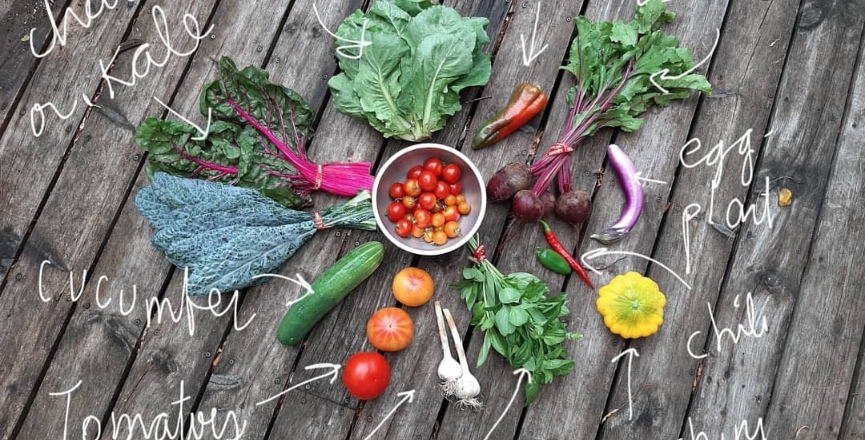Leticia Ama Deawuo is director of the Black Creek Community Farm (BCCF). Situated on 3.2 hectares of pristine farmland surrounded by 15,000 square metres of woodland, BCCF is an integral part of the northwest section of the Jane and Finch neighbourhood in Toronto, Ontario.
Home to certified organic vegetable fields, a food forest, a mushroom garden, four greenhouses, an outdoor classroom, pavilion and bake oven, chickens, a beehive, and a forest trail, BCCF is a very intentional anti-poverty action.
While programs and courses at the BCCF cater to all residents in the neighbourhood, this article focuses on the role Black women have played in bringing Black food sovereignty to their community.
According to Deawuo, “Black women feed their community, but do not own the land.” She asserts that patriarchy, racism, classism — including who has or doesn’t have access to resources — keep Black women in the “superwoman” role that forces them to work harder to secure food to feed their communities while caring for their families.
This inequality is compounded by the invisibility of Black women whose work is often not recognized, because it is seen as a duty. Warrior Black women syndrome, traps Black women in undervalued feminized labour that makes great demands of their time, energy and bodies. And still, they find time to organize and advocate for access to essentials like community gardens, affordable child care, and affordable housing.
Born in Ghana, Deawuo came to Canada when she was 12 and settled in the Jane and Finch neighbourhood where she still lives with her own family.
Deawuo’s lived experience has taught her that most Black women have family and ancestral ties to farming. She provides space for Black women to talk to those with similar lived experience so they can turn what many see as a hobby into a farming career.
Deawuo’s work is making affordable fresh vegetables and fruits available to those living within food apartheids. The cheap, subsidized foods that flood Black and brown neighbourhoods is not accidental, rather it’s the product of intentional decisions that predispose residents to chronic health conditions like hypertension, diabetes, cardiovascular disease, cancer and dental disease.
These neighbourhoods are food insecure due to austerity public policy. More fast food outlets and fewer grocery stores are located in poor areas of the city. The few food stores there are always have mac and cheese on sale, but lack fresh produce and charge more for milk and infant formula. Often undercover police follow Black, Indigenous, and people of colour (BIPOC) customers around the store as they shop.
The capitalist response to food insecurity was to open food banks as a short-term, emergency fix for hunger. After 35 years, demand continues to grow with no sign of letting up while food security remains a distant dream.
Generally, people using food banks have some source of income from employment, employment insurance (EI), social assistance, or disability-related income. In every case the income is insufficient to cover essential costs like housing, transportation, medications and child care, so food is sacrificed.
Comparing the Black Creek community with the affluent Toronto neighbourhood of Rosedale-Moore Park emphasizes the food security inequalities that exist. The median household income for Rosedale-Moore Park is $106,740 (2016) although 45 per cent of households earn $125,000 or more. Meanwhile, the Black Creek community has a median household income of $46,580 (2016). The median household income for Toronto as a whole at that time was $65,829 and the average home price was $823,300.
Not surprisingly, 67 per cent of households in Black Creek neighbourhood were renters with 37 per cent spending more than 30 per cent of their household income on shelter and 55.3 per cent renting apartments in buildings five stories or higher. In Black Creek, 51 per cent of respondents listed English as their mother tongue and 61 per cent said it was the language spoken at home.
In Rosedale, 45 per cent of households rented with 31 per cent spending more than 30 per cent of their household income on shelter and 50.4 per cent living in buildings over five stories high. In Rosedale 77 per cent of resident listed English as their Mother tongue and 92 per cent listed English as the language spoken at home.
Overall, Rosedale residents are healthier and have access to a wider variety of better-quality foods. Conversely, as a result of living within a food apartheid, the Black Creek community has higher incidents of chronic health conditions including diabetes and high blood pressure. In addition, residents often have to make difficult choices between purchasing prescriptions needed to keep their chronic conditions in check, paying the rent, or buying food.
Deawuo states,”Black food security does not benefit from capitalism. Historically people bartered for seeds, fish, food. Communities were self-sustainable, but that’s no longer true especially when we include the extraction practices in place around the globe. Land, seeds, resources, and opportunity equal power. Black food sovereignty is power and that redistribution of power benefits everyone in society.”
Doreen Nicoll is a freelance writer, teacher, social activist and member of several community organizations working diligently to end poverty, hunger and gendered violence.




